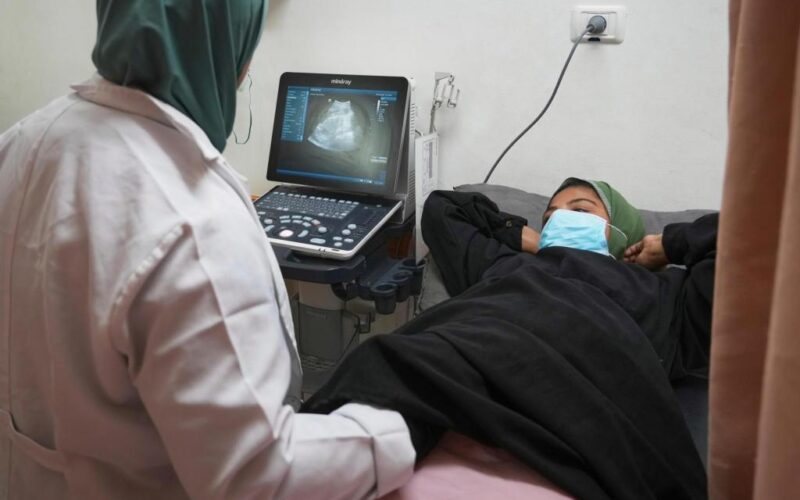By SARAH EL DEEB, MOHAMMED JAHJOUH and LEE KEATH
KHAN YOUNIS, Gaza Strip (AP) — Nearly seven months pregnant, Yasmine Siam couldn’t sleep, living in a crowded tent camp in Gaza and shaken often by Israeli bombardment. She couldn’t find proper food and hadn’t eaten meat for more than a month. Weak and losing weight, she saw doctors every day. There was little they could do.
One night this month, pain shot through her. She worried labor was starting but was too terrified of gunfire to leave her tent. Siam waited till daybreak to walk to the nearest mobile clinic. The medics told her to go to Nasser Hospital, miles away.
She had to take a donkey cart, jolted by every bump in the bombed-out roads. Exhausted, the 24-year-old found a wall to lean on for the hourslong wait for a doctor.
An ultrasound showed her baby was fine. Siam had a urinary tract infection and was underweight: 57 kilos (125 pounds), down 6 kilos (13 pounds) from weeks earlier. The doctor prescribed medicine and told her what every other doctor did: Eat better.
“Where do I get the food?” Siam said, out of breath as she spoke to The Associated Press on April 9 after returning to her tent outside the southern city of Khan Younis.
“I am not worried about me. I am worried about my son,” she said. “It would be terrible if I lose him.”
With Gaza decimated, miscarriages rise
Siam’s troubled pregnancy has become the norm in Gaza. Israel’s 18-month-old military campaign decimating the territory has made pregnancy and childbirth more dangerous, even fatal, for Palestinian women and their babies.
It has become worse since March 2, when Israel cut off all food, medicine and supplies for Gaza’s more than 2 million people.
Meat, fresh fruits and vegetables are practically nonexistent. Clean water is difficult to find. Pregnant women are among the hundreds of thousands who trudge for miles to find new shelters after repeated Israeli evacuation orders. Many live in tents or overcrowded schools amid sewage and garbage.
Up to 20% of Gaza’s estimated 55,000 pregnant women are malnourished, and half face high-risk pregnancies, according to the United Nations Population Fund, or UNFPA. In February and March, at least 20% of newborns were born prematurely or suffering from complications or malnutrition.
With the population displaced and under bombardment, comprehensive miscarriage and stillbirth figures are impossible to obtain. Records at Khan Younis’ Nasser Hospital show miscarriages in January and February were double the same period in 2023.
Dr. Yasmine Shnina, a Doctors Without Borders supervisor of midwives at Nasser Hospital, documented 40 miscarriages a week in recent weeks. She has recorded five women a month dying in childbirth, compared with around two a year before the war.
“We don’t need to wait for future impact. The risks are emerging now,” she said.








